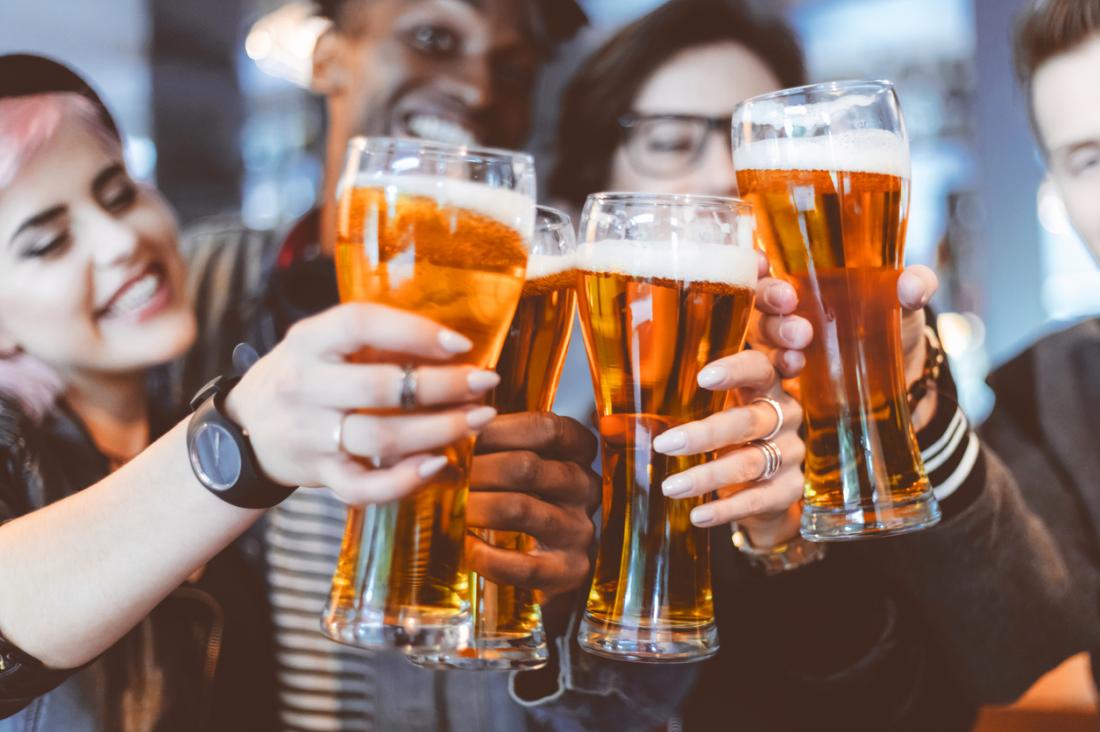A drinking problem can be debilitating. In addition it can impact one’s overall health. Also, it can affect our family, work life, and can threaten our well-being. At The Redpoint Center, one of the most common addictions we treat is Alcohol Use Disorder. The high prevalence and social acceptance of alcohol use can influence behavior. Furthermore, alcohol addiction can be insidious and hard to detect. Therefore, it’s key to know the signs of a drinking problem to determine how to help.
Stats on the Drinking Problem in the US
A 2016 summary, the United States National Survey on Drug Use and Health, reports that of Americans over the age of 12:
- 7 million report drinking alcohol in the past 30 days.
- 3 million report binge drinking (drinking 4+ drinks on at least one occasion in the past 30 days for women, and 5 or more for men).
- 3 million report heavy drinking (binge drinking five+ days in the past 30 days).
These statistics show how extensive alcohol use is in our country. Most of us are familiar with the term alcoholism as an addiction to alcohol. The term alcoholism is defined by the American Society of Addiction Medicine:
Alcoholism is a primary, chronic disease with genetic, psychosocial, and environmental factors influencing its development and manifestations. The disease is often progressive and fatal. It is characterized by continuous or periodic: impaired control over drinking, preoccupation with the drug alcohol, use of alcohol despite adverse consequences, and distortions in thinking, most notably denial. Hence, alcoholism is a very serious condition. Consequently, professional support is key.
A Drinking Problem Defined
The term alcoholism is now Alcohol Use Disorder in the Diagnostic and Statistical Manual of Mental Health Disorders, 5th Edition (DSM-V). In the DSM-V, Alcohol Use Disorder is categorized into mild, moderate, or severe. These categories depend on the number of symptoms.
The list below includes the criteria for Alcohol Use Disorder in the DSM-V. These are the symptoms that doctors use to diagnose a drinking problem or Alcohol Use Disorder.
Read through the following alcohol addiction symptoms. In addition, count the number of statements that apply to your (or a loved one’s) drinking habits. This list applies to adolescents and adults. The endorsement of two or more of the following criteria indicates a problematic pattern of alcohol use.
Symptoms of Alcohol Addiction
- Often drinking larger amounts or over a longer period of time than intended.
- Persistent desire or unsuccessful efforts to cut down or control alcohol use.
- Spending a great deal of time in activities necessary to obtain, use, or recover from the effects of alcohol.
- Craving alcohol or a strong desire or urge to drink alcohol.
- Recurrent use of alcohol results in a failure to fulfill obligations at work, school, or home.
- Continuing to use alcohol despite having persistent or recurrent social or interpersonal problems caused or exacerbated by the effects of alcohol.
- Giving up or reducing important social, occupational or recreational activities because of alcohol use.
- Recurrent use of alcohol in situations where it is physically hazardous to do so.
- Continuing to use alcohol despite knowledge of having a persistent or recurrent physical or psychological problem that is likely to have been caused or exacerbated by alcohol use.
- Tolerance to alcohol, needing to use increasing amounts of alcohol to get the desired effect.
- Physical withdrawal symptoms that occur when alcohol consumption is stopped.
Alcohol Use Disorder
If you can relate to two or more of the above, you may have an Alcohol Use Disorder. Hence, the severity is measured in terms of the number of items endorsed.
2 or 3: Mild Alcohol Use Disorder
4 or 5: Moderate Alcohol Use Disorder
6 or more: Severe Alcohol Use Disorder
If you or a loved one is struggling with alcohol addiction, The Redpoint Center is here to help. Please feel free to contact us. Even if we are not the right fit, we will support you and your loved ones on the journey to recovery.
The Redpoint Center treats both adults and youth struggling with addiction and alcohol. To learn more about our Longmont Drug Rehab, call 888-509-3153.



